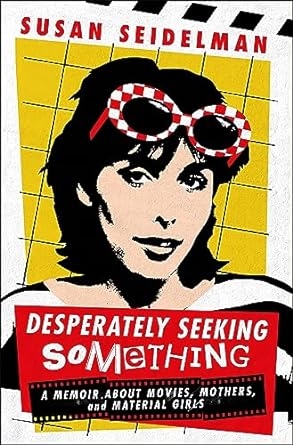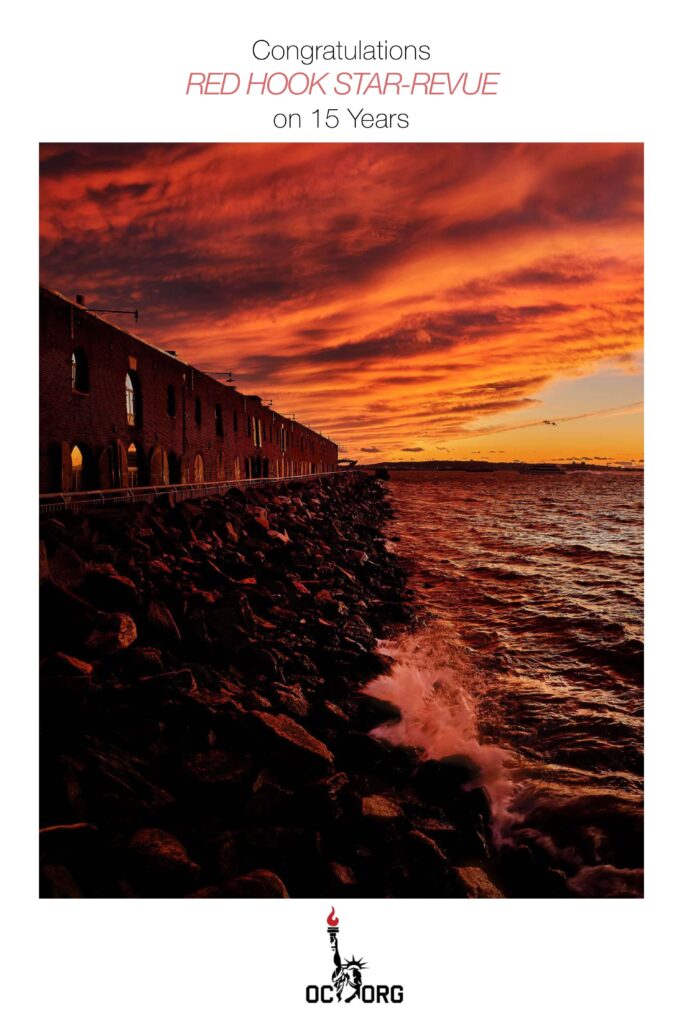The genesis for many of director Susan Seidelman’s movies starts with scribbled notes on subway rides, capturing the essence of strangers who fascinate her. After observing people’s behavior, sketching their outfits and jotting down their words, she tucks these notes in a drawer, waiting for the right moment to use them. Out of this jumble, she crafts many fine films.
Now on the other side of 70, Seidelman reflects on her storied career in her memoir, “Desperately Seeking Something.” The book details how she honed her vision to tell stories about women through a female lens, navigating the highs and lows of critical and audience reception. Refreshingly, her memoir emphasizes persistence over drive.
Born outside Philadelphia in 1952, Susan is the oldest of three children in a cheerful Jewish family. Her father’s successful hardware business allows them to move to the nicest house in the second-nicest suburb. “My father had the letter ‘S’ for Seidelman etched in fancy script on the glass shower door,” she recalls, reflecting on the suburbs as a state of mind—clean and safe, but reinforcing uniformity and sameness, “a safety net that could also feel like a noose.”
As a teenager, Seidelman keeps a diary, formally signing each entry with her full name, and becomes interested in bad boys. Her decision to attend college defies the expectation of settling for being pretty and finding a husband. She drifts away from her fashion studies when they become too technical and finds herself drawn to the feminist movement. A film appreciation class blows her mind, leading her to New York University’s graduate film program. She can count the other women on one hand.
Film school provides a student crew and access to equipment. Her short film, “And You Act Like One Too” (1976), shot in her parents’ house, earns positive attention and encourages her to continue. Supplementing her education in New York’s movie houses, she absorbs foreign films, old Hollywood gems and cult classics. “Cinema is a language that I needed to learn,” she says.
After a bad breakup and her grandmother’s death, Seidelman uses her inheritance to make “Smithereens” (1982), a gritty film about a groupie in the downtown music scene starring Susan Berman and Richard Hell (lead singer of the Voidoids). Shot with a 16-mm camera and a small crew, the film is selected for the Cannes Film Festival and picked up for distribution by New Line Cinema.
Her Hollywood break comes with “Desperately Seeking Susan,” a screwball comedy about mistaken identities featuring Rosanna Arquette as a bored housewife infatuated with a charismatic freeloader—Madonna, in her breakout role.
Seidelman’s subsequent films, like “Making Mr. Right” (1987) and “She-Devil” (1989), showcase her ability to tell unique stories with strong female leads despite mixed receptions. She later ventures into television, directing the pilot for “Sex and the City” (1998). Her Carrie Bradshaw has brown hair, wears mostly black and lives in a third-floor walkup with a flashing neon sign illuminating her window. Seidelman’s version of the city is almost noir-ish.
Seidelman’s memoir is a bit like her drawer full of notes, offering snippets of ideas. She still seems to be casting about for what they all mean. She started writing the book during the pandemic’s lockdown phase, holed up in her New Jersey home with her husband, and a bit of that bored housewife peeks through. She wonders, “Can you be ordinary and still have something extraordinary to say?”
The best part of reading this was that it piqued my interest in Seidelman’s movies. They show you things she feels that she struggles to find the words for in her book. Yet both reveal her interest in exploring women’s interior lives and externalizing them on screen.
Author
Discover more from Red Hook Star-Revue
Subscribe to get the latest posts sent to your email.










